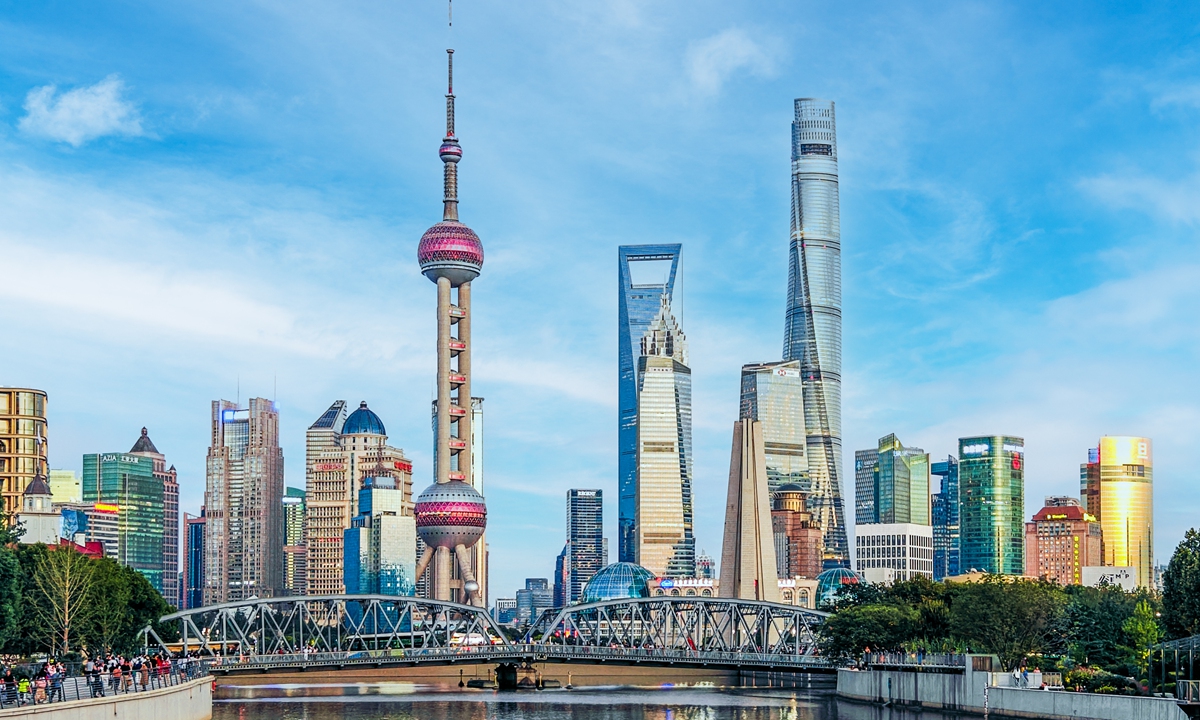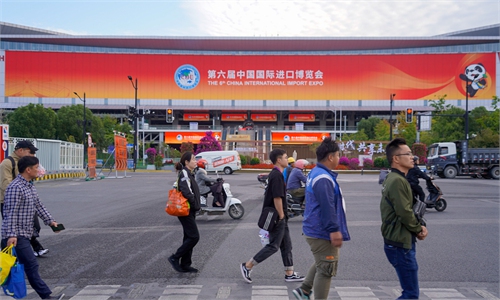China to pursue high-quality opening-up, shorten ‘negative list’ for foreign investment: Premier Li Qiang

Shanghai, China Photo: IC
China will ramp up efforts to attract foreign investment, including further shortening the “negative list” for foreign investment, and all market access restrictions on foreign investment in manufacturing will be abolished, according to a government work report delivered by Chinese Premier Li Qiang to the annual session of the National People’s Congress (NPC) on Tuesday.
Highlighting the pursuit of higher-standard opening up and promoting mutual benefits, Li said that the country will promote alignment with high-standard international economic and trade rules, steadily expand institutional opening-up, and facilitate interplay between domestic and international markets.
“We will ensure the overall stable performance of foreign trade and foreign investment and foster new strengthens in international economic cooperation and competition,” Li said.
According to the report, market access restrictions in services sectors, such as telecommunications and healthcare, will be reduced. In addition, the country will expand the Catalog of Encouraged Industries for Foreign Investment and encourage foreign-funded enterprises in China to reinvest in China.
“We will ensure national treatment for foreign-funded enterprises and see that they can participate in government procurement, bidding, and standard-setting processes in accordance with the law and on an equal footing,” Li said.
China will also strengthen services for foreign investors and make China a favored destination for foreign investment and the country will make it easier for foreign nationals to work, study, and travel in China, Li said.
“These efforts confirm Chinese government’s commitment to further expanding opening-up, sharing development dividends with the rest of the world,” Li Yong, a senior research fellow from the China Association of International Trade, told the Global Times on Tuesday.
Continuously shortening the negative list for foreign investment represents the country’s increasing opening-up to foreign capital, while abolishing all market access restrictions on foreign investment in manufacturing showed that China, as a global manufacturing center, is not a closed system but welcomes capital from other countries to invest in the country, which will help upgrade global manufacturing for the benefit of the mankind, Li Yong explained.
The government work report set a growth target of around 5 percent for the Chinese economy in 2024, which is higher than assessments by international organizations.
Li Yong noted that the around 5 percent growth rate will shore up the confidence of foreign investors in China. “Foreign investors coming to China will not only contribute to China's economic growth, but also to their own growth, as the size of China's huge market will be unmatched by any other country.”
Moreover, the country’s continuous efforts to facilitate foreign investment will shore up investor confidence and assist the predictable and sustainable development environment for foreign investors operating in China, Li Yong said.
Over the years, the negative list for foreign investment has been continuously reduced. The first negative list for foreign investment in 2013 contained 190 articles, while the current version has been shortened to 31 articles and the version of Chinese free trade zones to 27 articles, Huang Shouhong, head of the State Council Research Office and the drafting group for the government work report, said on Tuesday.
Referring to last year's foreign investment, Huang noted that in 2023, China experienced a decline in the amount of actual use of foreign investment. As with any event, short-term fluctuations are normal and caused by a variety of factors.
“According to United Nations Conference on Trade and Development, if we exclude the factor of faster growth of investment transit areas, global foreign direct investment fell by 18 percent last year. At the same time, all countries are increasing their efforts to attract investment, so the competition for investment is becoming more intense,” Huang said.
China’s growth rate in attracting foreign investment fell by 8 percent in yuan terms last year, but it still ranked second internationally and first among developing countries, Huang said.
“At present, we face some disturbing factors in attracting foreign investment, but investors are rational and look for medium- and long-term returns. Foreign investors who have invested in China have seen a return on their direct investment of about 9 percent in recent years, which is at a relatively high level internationally. China remains a major destination for foreign investment globally, Huang noted.
“Recently, I have seen some foreign chambers of commerce reports which show that the vast majority of enterprises investing in China will not reduce their investment, and a high percentage of them will continue to make China their first choice or among the top three investment destinations in the world,” Huang said.
Yin Zheng, Executive Vice President of China & East Asia Operations, Schneider Electric, said in a note sent to the Global Times on Tuesday that China is promoting high-quality development and focusing on building new quality productive forces, creating greater development potential for China.
“Operating in China for 37 years now, Schneider Electric keeps investing in China with an optimistic perspective to China’s development. China is already the company’s second largest market in the world, one of the most important supply chain bases, and one of our four largest R&D bases. China has become an important source of innovation and development force for Schneider Electric,” Yin noted.


